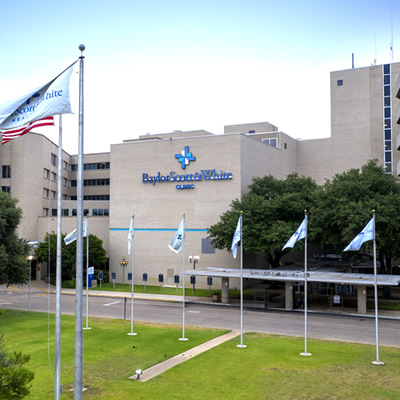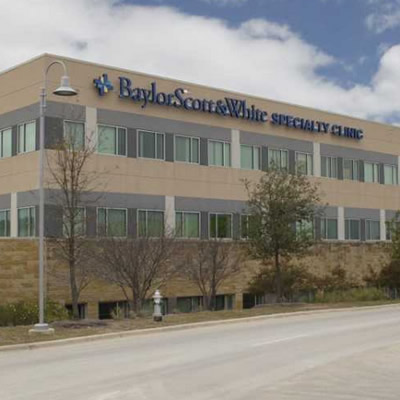TCAR: an advanced solution to carotid artery disease
You have two carotid arteries located on either side of your neck. These arteries are essential for carrying oxygen-rich blood from your heart to your brain, face and neck. When one is blocked or narrowed, you can develop a condition known as carotid artery disease.
Carotid artery disease increases your risk of stroke, but a procedure called transcarotid artery revascularization (TCAR) can lower your risk and prevent blood clots. The TCAR procedure requires smaller incisions than traditional surgeries for carotid artery disease. It may be an option even if you are at a high risk of complications from open surgery.
Treating carotid artery disease with TCAR
Carotid artery disease occurs when fatty plaque builds up along the walls of one of your carotid arteries. This buildup causes the artery to narrow, reducing blood flow to the brain. Plaque can also break off and form clots. Any reduced or blocked blood flow to the brain can cause a stroke.
A TCAR procedure can open narrowed or blocked arteries and prevent a future stroke.
How transcarotid artery revascularization surgery works
TCAR is a minimally invasive procedure, meaning your surgeon performs the surgery through smaller incisions rather than the single large incisions used in traditional open procedures.
Your surgeon will make a small incision in your neck, just above your collarbone, and insert a soft, flexible sheath into your carotid artery.
The sheath is connected to a special system outside your body that reverses your blood flow, moving blood away from your brain. The system filters your blood to remove any plaque fragments that may come loose during the procedure, and your blood re-enters your body through a second incision into one of your leg veins. Finally, your vascular surgeon inserts a stent, a small, expandable tube that is used to open up and support the narrowed artery.
Other options for carotid artery disease
TCAR is now approved for both people who are at high risk of complications from traditional carotid artery surgeries and those who have standard surgical risks. Your doctor will discuss the criteria for TCAR with you. These criteria include underlying medical conditions, as well as previous head/neck radiation or surgery and anatomic considerations, among other things.
If TCAR isn’t right for you, your doctor may recommend carotid endarterectomy. Carotid endarterectomy is an open surgery. During this procedure, your surgeon opens your carotid artery to remove plaque or blockages.
Benefits of TCAR surgery
TCAR offers many benefits over other carotid artery disease surgeries. The TCAR procedure is a less invasive treatment option, which generally offers benefits including:
- Faster discharge from the hospital
- Faster recovery
- Fewer complications
The procedure also requires less time in the operating room, and you can typically be discharged home sooner.
What to expect during a TCAR procedure
Before having a TCAR procedure, you’ll receive instructions to help you prepare. As part of your preparations, you will undergo presurgical testing that may include blood tests and imaging scans that allow your surgeon to get a good look at the carotid artery. Your instructions will also include specific guidance about whether to continue taking your current medications and when to take the medications necessary for the procedure, such as blood thinners. You’ll also want to pay careful attention to the instructions about when to begin fasting before your procedure.
Following the procedure, you’ll remain in the hospital for at least a day so your medical team can monitor you for complications. If your recovery goes smoothly, you’ll be discharged home.
When you’re discharged, pay close attention to your instructions. You will want to take special note of the signs of infection you should watch for and what to do if any complications occur. Your discharge instructions from your care team will also let you know when it’s safe to resume normal activities, including work.
The primary goal of any carotid artery surgery is to protect your long-term health and prevent future strokes. You’ll work with a team of experienced vascular surgeons to determine which procedure will effectively resolve your carotid artery disease.
Find a location near you
Advanced vascular surgeries, including TCAR, are available at our primary heart facilities. You can access comprehensive follow-up care at convenient locations across North and Central Texas. We’ll help you find the location with the expertise you need.

Baylor Scott & White All Saints Medical Center - Fort Worth
1400 8th Ave , Fort Worth, TX, 76104
Baylor Scott & White Clinic - Temple
2401 S 31st St , Temple, TX, 76508- Monday: 8:00 am - 5:00 pm
- Tuesday: 8:00 am - 5:00 pm
- Wednesday: 8:00 am - 5:00 pm
- Thursday: 8:00 am - 5:00 pm
- Friday: 8:00 am - 5:00 pm

Baylor Scott & White Heart and Vascular Hospital - Dallas
621 N Hall St , Dallas, TX, 75226
Baylor Scott & White Heart and Vascular Hospital - Fort Worth
1400 8th Ave Bldg A, 6th Floor, Fort Worth, TX, 76104
Baylor Scott & White Medical Center - Centennial
12505 Lebanon Rd , Frisco, TX, 75035
Baylor Scott & White Medical Center - Frisco
5601 Warren Pkwy , Frisco, TX, 75034
Baylor Scott & White Medical Center - Frisco at PGA Parkway
7600 Better Way , Frisco, TX, 75033
Baylor Scott & White Medical Center - Grapevine
1650 W College St , Grapevine, TX, 76051
Baylor Scott & White Medical Center - Hillcrest
100 Hillcrest Medical Blvd , Waco, TX, 76712
Baylor Scott & White Medical Center - Irving
1901 N MacArthur Blvd , Irving, TX, 75061
Baylor Scott & White Medical Center - Lake Pointe
6800 Scenic Dr , Rowlett, TX, 75088
Baylor Scott & White Medical Center - Lakeway
100 Medical Pkwy , Lakeway, TX, 78738
Baylor Scott & White Medical Center - Marble Falls
810 W State Hwy 71 , Marble Falls, TX, 78654
Baylor Scott & White Medical Center - McKinney
5252 W University Dr Highway 380 at Lake Forest Drive, McKinney, TX, 75071
Baylor Scott & White Medical Center - Plano
4700 Alliance Blvd , Plano, TX, 75093
Baylor Scott & White Medical Center - Round Rock
300 University Blvd , Round Rock, TX, 78665
Baylor Scott & White Medical Center - Sunnyvale
231 S Collins Rd , Sunnyvale, TX, 75182
Baylor Scott & White Medical Center - Temple
2401 S 31st St , Temple, TX, 76508
Baylor Scott & White Medical Center - Waxahachie
2400 N Interstate 35E , Waxahachie, TX, 75165
Baylor Scott & White Specialty Clinic - Killeen Hemingway
2405 S Clear Creek Rd , Killeen, TX, 76549- Monday: 8:00 am - 5:00 pm
- Tuesday: 8:00 am - 5:00 pm
- Wednesday: 8:00 am - 5:00 pm
- Thursday: 8:00 am - 5:00 pm
- Friday: 8:00 am - 5:00 pm

Baylor Scott & White Specialty Clinic - Lakeway
200 Medical Pkwy , Lakeway, TX, 78738- Monday: 8:00 am - 5:00 pm
- Tuesday: 8:00 am - 5:00 pm
- Wednesday: 8:00 am - 5:00 pm
- Thursday: 8:00 am - 5:00 pm
- Friday: 8:00 am - 5:00 pm

Baylor Scott & White The Heart Hospital - Denton
2801 S Mayhill Rd , Denton, TX, 76208
Baylor Scott & White The Heart Hospital - McKinney
5268 W University Dr , McKinney, TX, 75071
Baylor Scott & White The Heart Hospital - Plano
1100 Allied Dr , Plano, TX, 75093
Baylor Scott & White Vascular and Vein Clinic - Austin
2217 Park Bend Dr Ste 230, Austin, TX, 78758- Monday: 8:00 am - 5:00 pm
- Tuesday: 8:00 am - 5:00 pm
- Wednesday: 8:00 am - 5:00 pm
- Thursday: 8:00 am - 5:00 pm
- Friday: 8:00 am - 5:00 pm

Baylor Scott & White Vascular Surgery Specialists - Fort Worth
1250 8th Ave Ste 200, Fort Worth, TX, 76104- Monday: 8:30 am - 4:30 pm
- Tuesday: 8:30 am - 4:30 pm
- Wednesday: 8:30 am - 4:30 pm
- Thursday: 8:30 am - 4:30 pm
- Friday: 8:30 am - 4:30 pm

Baylor Scott & White Vascular Surgery Specialists - Grapevine
2020 W State Hwy 114 Ste 200, Grapevine, TX, 76051
Baylor Scott & White Vascular Surgery Specialists - Mansfield
1776 N US 287 Ste 220, Mansfield, TX, 76063